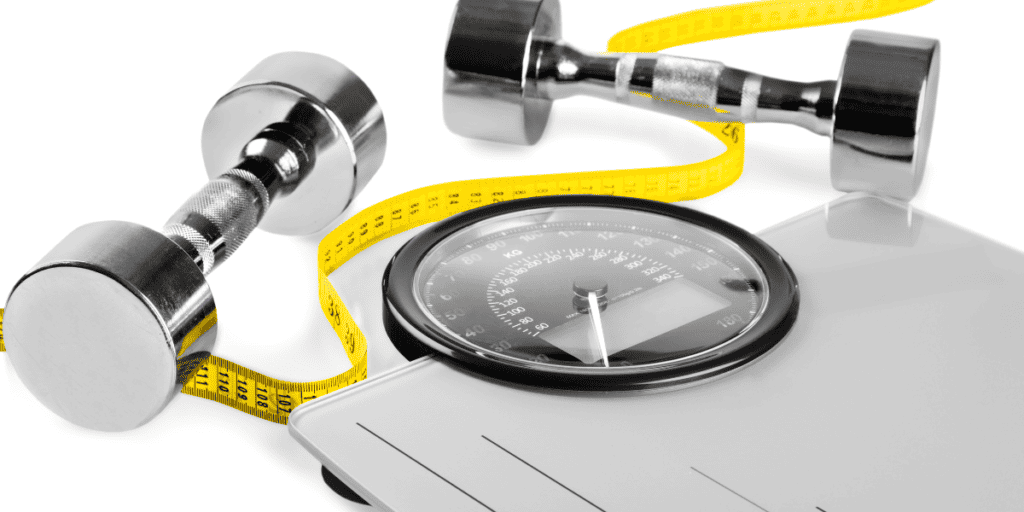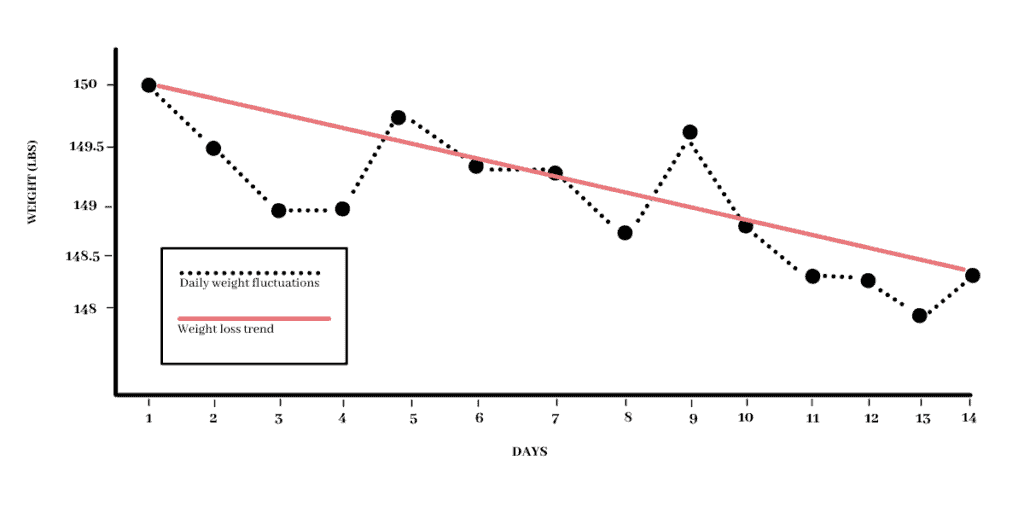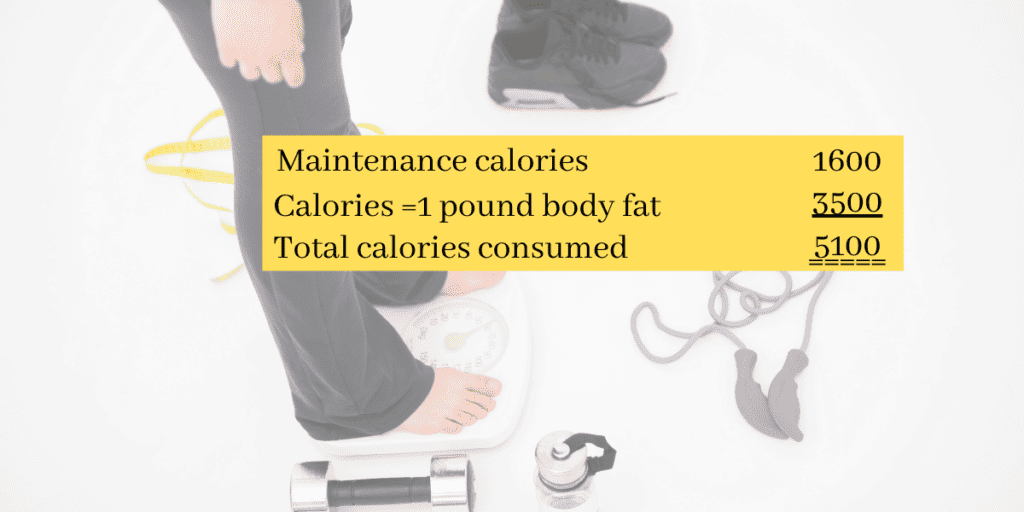Did you get on the scale this morning? Did the number have you rejoicing or wondering “what the heck?” What if I told you…
The scale is lying!

You did not lose or gain a pound of body fat during the night. It’s simply not possible.
So, you may be wondering then what is the one-pound fluctuation on the scale. In this article, I’m going to explain 5 ways the scale is lying to you. But, don’t go throw out your bathroom scale just yet.
New here? Thanks for stopping by or welcome back. After you read this blog, be sure to check out some of my other articles for women over 50 who want to lose body fat, build muscle, create phenomenal bodies they love.
What does the scale tell you?
To understand how the scale is lying, we first need to understand what it is telling us. The scale is a great tool for measuring total body weight. Your total body weight consists primarily of bone, water, fat, and muscle. So, how do you know if the movement on the scale is bone, water, fat or muscle? The fact is… you don’t.
Even scales that say they give you body fat, lean muscle and even water, are not accurate.
Should you use the scale if the scale is lying?
Despite the fact that the scale can be misleading based on any ONE reading, I still get on the scale daily for a couple of reasons.
- The scale is still a good indicator of trends. Is your weight going up or down over time? More about this shortly.
- The scale is especially helpful at getting us back on track with healthy eating after a weekend binge on chicken wings, pizza and dessert.
Although you may be tempted to skip the scale because you don’t want to see the impact that weekend binge had on your previous fat loss, not getting on the scale does not change the number.
Beyond the reminder to get back on track and looking at trends over time, the scale can provide right down inaccurate information or at least we may misinterpret what the scale is actually telling us.
Placing too much emphasis on a daily scale reading can lead to frustration and disappointment. For some women, an extra half-pound on the scale can even influence how we feel about ourselves for the rest of the day.

And, if you’ve been following your plan and doing “everything right” and you “gain a pound”, unfortunately, you could become so discouraged that you may ditch all your efforts assuming “it just isn’t working”. When in fact, the problem is simply that the scale is lying or rather misleading you.
But, before you completely throw out your scale, let’s take a look at what is going on.
Why does the scale fluctuate day to day?
There are a variety of factors that can influence your total body weight from day to day. First, let’s talk about carbohydrates or carbs, for short.
Carbs are needed for energy. Carbs can be used for immediate energy needs, stored as glycogen for use later or stored as fat.

Carbs are great to consume prior to physical activity. These carbs are used immediately and have no impact on the scale.
How the scale is lying...Carbohydrates stored as glycogen and water
A limited amount of carbs can be stored in the liver and muscles. The liver can store approximately 100 grams of carbohydrates and your muscles can store approximately 500 grams of carbohydrates. The liver releases these glucose molecules into your blood to keep your blood sugar regulated. Your stored muscle glycogen is used solely by your muscles during exercise.
Each gram of stored carbohydrate binds to 3 grams of water. So, if you are storing 600 grams of carbohydrates, you also have 1800 grams of water, this would equate to approx 5 pounds. This is not body fat!
However, please note, the opposite is true if you deplete your glycogen storage, which can give you false sense of “body fat lost”. This can occur if you use up the glycogen storage and consume fewer carbs on any particular day. When you re-fill your glycogen storage, those 5 pounds are back! Again, this is not body fat! But, can leave you feeling like you’re on a weight loss rollercoaster.
Cutting carbs add to how the scale is lying
This also explains why you can drop several pounds immediately after cutting carbs from your diet. The scale is telling you that you’ve lost weight, which you have. Your total body weight is down, but you have not lost body fat.
Hopefully, this reason alone has you convinced to not get overly obsessed with the day to day fluctuations on the scale. Instead look at the trend over a period of a few weeks. I still like to weigh myself daily.
If you only chose to weigh-in weekly or even less frequently, how do you know if you’re weighing on a day when your carb storage is full or empty?
How the scale is lying...Cortisol related water retention
You may be familiar with the hormone, Cortisol. It is often thought of as the “stress” hormone. This article is not a deep dive into Cortisol. Instead, I’ll keep this strictly about how cortisol contributes to why the scale is lying to us.
Stress can increase the hormone, cortisol, which then signals your body to “hold” water. The stress can be physical or psychological. Long-term dieting can cause stress within your body. Hard workouts over time can cause stress to your body. However, there are far more factors than I can discuss here.
Just know that the weight gain on the scale is not necessarily body fat.
Body fat occurs when you consume more calories than you use.
How the scale is lying...Slow moving bowels
The last point I’ll make, although not necessarily the only other reason the scale is lying is all the food you’ve eaten – from the time you swallow to the time you expel the remnants.
Ok, there is no easy way to beat around the bush so I’ll just say it.
Have you pooped today?
Food doesn’t just magically disappear after we swallow. I’ll keep this simple. The food you eat weighs something. So, how soon you get on the scale after eating will impact the scale.
But, did you know…? It can take 2 – 5 days for the food you swallow to leave your body as poop.
The scale moved. Is the scale lying?
With the many factors influencing what the scale does on a day to day basis, how do you know if you lost/gained body fat or it’s just a temporary blip?
Scale is not lying...Calories in are greater than calories expended
OK, this is the weight gain you need to focus on. Whether these excess calories come from carbohydrates, fats or protein, excess calories will be stored as fat. Because of the other factors previously mentioned, the easiest way to know if this is the source of your weight gain is to look at the trend over time.

Notice the day to day weight fluctuations in the graph above. Some days the scale jumped up and others it came down or remained the same. What’s important to note is the downward trend.
This coupled with the fact that this woman is exercising and following a healthy nutrition plan, is a good indicator that she is losing body fat.
To gain a pound of body fat, you need to consume an extra 3500 calories above your daily maintenance calories. Your maintenance calories are how many calories your body needs to maintain your current weight. Let’s say your maintenance calories are 1600. To gain a pound of body fat in one day, you’d need to consume 5100 calories. That is a LOT of calories for the average person.

And, that is rarely how body fat is gained. Instead, it is more likely that someone would eat an extra 500 calories per day for several days. With the same maintenance calories of 1600, let’s say you eat 2100 calories every day for 7 days. That would add up to an extra 3500 calories and unless you are doing extreme exercise to burn it off, you are likely to gain a pound of body fat.
In this case, the scale is not lying.
Looking at how your weight is trending over a longer period gives a much more accurate picture of what is really happening.
How the scale is lying...You're gaining muscle
Another source of weight gain from the scale’s perspective is muscle gains. The scale cannot accurately distinguish between body fat and muscle gains. If you are following a strength training program, you should be building muscle. It’s also possible that you are losing body fat and gaining muscle weight and the scale does not move.
This can be frustrating and give you the opinion that what you are doing is NOT working, which would be completely inaccurate.
The scale is just one piece of data. If you are following a strength training program, I highly recommend taking periodic body measurements. I frequently hear comments from clients like this one
“I was so disappointed because the scale was not moving. I decided to take my measurements like you suggested. AND, I lost 9 inches!!!”
In addition to muscle gains, as you build muscle the bone that the muscle attaches to gets stronger, more dense and weighs more too. The scale is not lying. These are both weight gains you want and need!
How the scale is lying...What the scale cannot tell you
Although valuable, the scale is just one tool. The scale does not tell you
- If you are getting more fit
- Your overall health is improving
- Whether you are gaining muscle
- How your clothes fit
- How you look in the mirror
I am still a huge fan of weighing in every day. In addition to getting on the scale daily, I track my weight daily. In my opinion, the tracking is the most important part. This way you can see the trends.
Keep in mind, the scale is not meant to make us feel bad or guilty. If getting on the scale can ruin your day, then you may want to weigh in weekly instead of daily for a while.
But, as I mentioned earlier, you risk weighing in on one of the anomaly fluctuations and in order to see the trend it will take longer than it does if you are tracking daily. However, it is a personal choice.
I will caution you. Not getting on the scale because you think you won’t like the result, does not change the result.
Also, make sure to use other methods for determining if you are gaining/losing body fat like measurements, photos, and how your clothes fit. If your clothes are getting tight around your mid-section, it’s probably not because your glycogen stores are full or because you’re gaining muscle. Just saying.
If you decide to follow my advice and weigh yourself, here are my tips:
- Weigh yourself Daily (weekly at a minimum)
- Always first thing In the morning
- Weigh-in with no clothes (or minimal – same every time) and after you’ve used the bathroom
- Write it down so you can keep track of your progress
Pin it now. Read it later.

